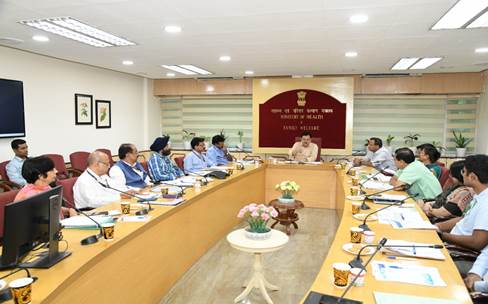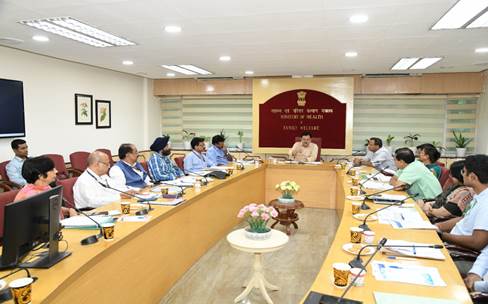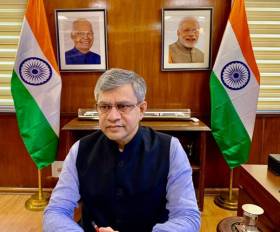
Status of implementation of National Action Plan was discussed in the Inter-Sectoral Coordination Committee on Anti-Microbial Resistance chaired by Shri Rajesh Bhushan, Union Health Secretary, here today.
Highlighting the importance of coordinated multi-lateral actions to address the growing menace of AMR in the country, Union Health Secretary stated that “AMR cannot be tackled in a linear and singular manner. As the issues and action points are multi-agency across the government and non-government sectors, the action plan to address it requires the joint efforts of all stakeholders through a unified mission mode approach”. He further urged the partner Ministries/Departments to work in a convergent mode with whole of government approach to bring together the expertise and domain knowledge for a comprehensive action plan with key performance indicators that can be periodically monitored. Representatives from the partner Ministries/Departments also presented the steps taken by them towards prevention and control of AMR.
The Inter-Sectoral Coordination Committee on AMR (ISCC-AMR) is a high level committee chaired by Secretary, Ministry of Health and Family Welfare with participation from Department of Health Research Indian Council of Medical Research (ICMR); Dept. of Animal Husbandry, Dairying & Fisheries; Dept. of Biotechnology; CSIR; CDSCO, FSSAI, AYUSH, NMC, Director General of Health Services (DGHS), MoHFW; Dept. of Animal Husbandry, Dairying & Fisheries; Ministry of Food Processing Industries and Ministry of Environment & Forest & Climate Change.

Setting the context of the meeting, Shri Lav Agarwal, Addl. Secretary, Health Ministry stated that Government of India identified Anti-Microbial Resistance (AMR) as a key priority in its National Health Policy, 2017, and India’s National Action Plan for containment of AMR (NAP-AMR) was released in April 2017. The Delhi Declaration on AMR, an inter-ministerial consensus, was signed at the launch of NAP-AMR by the concerned ministries pledging their whole-hearted support in AMR containment. AMR is also one of the three key priorities of India G20 Health Working Group, reflecting its importance at the global level.
The meeting delved on the action taken under the various strategic priorities as part of the NAP-AMR. The strategic objectives of the NAP-AMR include enhancing awareness and understanding among people through communication and IEC activities. It also entails increasing knowledge and evidence through enhanced surveillance of AMR in human, animal and the environment through the National AMR Surveillance Network (NARS-Net) and state surveillance networks. The third strategic objective is infection prevention and control. Towards this, National Guidelines for Infection Prevention and Control in healthcare facilities were issued in January 2020. Anti-microbial stewardship constitutes the fourth strategic objective of NAP-AMR. The fifth objective is bringing innovative research and development in new medicines and technologies, while national, sub-national and international collaborations constitute the sixth and final strategic objective of NAP-AMR.
The meeting discussed the ongoing initiative including an Infection Prevention and Control (IPC) unit being established at NCDC to draft National IPC programme and linkages with IPC under other vertical health programmes, need for developing a digital platform to collect and collate national and state level data on antimicrobial consumption and duly converging human, animal, environment and food sector , focus on creation of state specific Action Plans on AMR, and involvement of research agencies to develop an integrated research agenda on AMR.
It was decided that based on the learnings from the implementation of the ongoing NAP-AMR, Ministry of Health would prepare the National Action Plan on AMR 2.0 duly converging ongoing initiative under different Ministries so that concerted efforts towards control of AMR could be strengthened.







Leave a Reply
You must be logged in to post a comment.